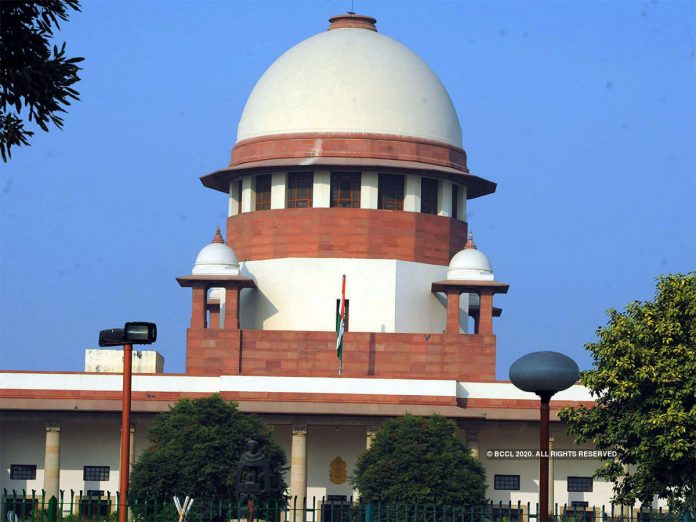The Supreme Court‘s five-judge constitution bench will hear Maratha reservation matter from March 8, challenging the Bombay High Court order upholding reservations for Marathas in jobs and education under the Maharashtra Socially and Educationally Backward Classes Act 2018.
During the hearing on Friday, Senior Counsel Mukul Rohatgi asked the bench to list the matter for hearing in the first week of March considering physical hearing may commence by then.
The bench, led by Justice Ashok Bhushan, said it will keep the matter for hearing after 3-4 weeks as physical hearing may commence by then and asked Rohatgi to be present physically. Justices L. Nageswara Rao, S. Abdul Nazeer, Hemant Gupta and S. Ravindra Bhat was also part of the bench. The stay order will continue.
On January 20, the five-judge bench had said it will take a call after two weeks whether it will hear the matter physically or virtually and had listed it for Friday.
Previously, the Constitution Bench had refused to vacate the stay order put in place by the three-judge Apex Court bench on making the appointments and admissions under the Maratha quota. The three-judge bench, headed by Justice Rao, had referred the appeals to the Constitution Bench.
Maharashtra had passed the Socially and Educationally Backward Classes Act, 2018 (SEBC Act) to provide 16 percent reservation for the Maratha community in jobs and educational institutions. The Act was challenged before the Bombay High Court which had upheld its constitutional validity. The decision of the Bombay High Court upholding the law with modifications was challenged in the Supreme Court. One of the primary grounds for challenge was that this law, if implemented, would breach the 50% ceiling for reservations.
Also Read: Sonu Sood vs BMC: Actor withdraws his plea in Supreme Court
On June 27, 2019, the Bombay High Court had upheld the constitutional validity of the Act. It reasoned that:
- State governments have the power to increase reservation beyond the ceiling limit of 50% in extraordinary circumstances justified by quantifiable data.
- The Justice Gaikwad Commission report was based on scientific and quantifiable data which adequately justified both including Marathas as a socially and educationally backward class as well as the extra-ordinary condition of creating reservations beyond the 50% ceiling limit.
- The State Government did not encroach upon judicial power as it did not directly overrule any court order. It merely removed the basis of the Court’s earlier order by repealing the 2014 Ordinance and Act.
- The Act meets the test of reasonable classification under Article 14 of the Constitution as it provides reservation for the newly identified class of Marathas, who have been historically incorrectly denied affirmative action, without unjustly depriving the existing Other Backward Classes.
- The 102nd Constitution (Amendment) Act, 2018 does not curtail the legislative competency of state legislatures to give effect to Articles 15(4) and 16(4) of the Constitution through a fair and adequately effective Commission.


